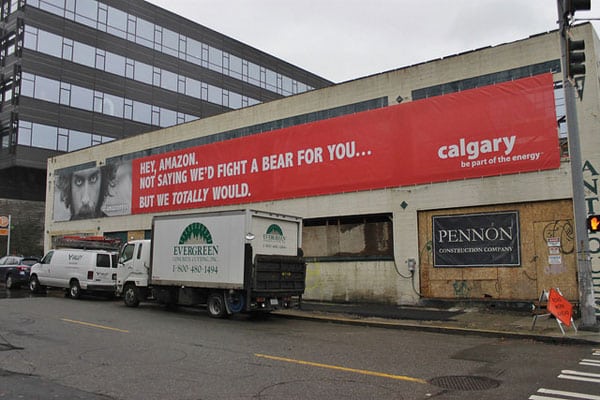
August 5, 2018; New York Times
Dangling the prospect of a $5 billion capital investment and 50,000 new, high-paying jobs, Amazon encouraged cities across North America to compete to become the site of their second corporate headquarters, known by the abbreviation “HQ2.” Visions of immense economic benefit got 238 communities to submit proposals. Amazon has reduced that number to the 20 finalists who are now awaiting word on who will be selected.
What remains unclear is the cost of winning, and whether the benefits will outweigh the costs.
As the saying goes, there’s no such thing as a free lunch, and HQ2 will not come to the winning city cheaply. Cities aren’t competing solely on the best workforce, the most attractive social and cultural environment, or the best weather. To win, each had to offer a package of economic incentives. That Amazon expected tax and other benefits in return for their investment is not news—except, perhaps, in their eventual size. Across the nation, cities and states have gotten used to luring businesses with financial incentives. The cost of these incentives, financial and culturally, and who will end up paying for them is often unclear, and long-term assessment challenges their efficacy.
Details about how cities are bidding for Amazon remains hard to track, as many finalists have kept their proposals secret. According to a recent New York Times article examining the HQ2 selection process, even “civic leaders can’t find out what sort of tax credits and other inducements have been promised to Amazon…taxpayers could get saddled with a huge bill and have little chance to stop it.”
Sign up for our free newsletters
Subscribe to NPQ's newsletters to have our top stories delivered directly to your inbox.
By signing up, you agree to our privacy policy and terms of use, and to receive messages from NPQ and our partners.
This secrecy comes with consequences. Those who will be most affected by the critical public policy issues a winning city will face won’t be part of the discussion. Nonprofit organizations dedicated to community betterment can’t join in the debate over whether the potential economic, employment, and community benefits of HQ2 outweigh the potential downsides of higher taxes and rents and less money for government support. They have a valuable perspective to offer but won’t be able to participate in an important civic decision.
One major concern is that the higher wages coming to 50,000 of the winning city’s workers will cause housing costs to soar, pushing out long-term residents who can’t keep up. The Times cited leaders from HQ2 finalist Austin and from Seattle, where Amazon and other tech firms are headquartered, about the impact. In Seattle, according to Mayor Jenny Durkan, housing prices average $824,000, rents have soared 57 percent in the last five years, and 4,000 homeless people sleep on the streets every night. Austin city councilwoman Leslie Pool said the “city lacked the infrastructure and housing to accommodate 50,000 high-paying jobs and that such fast growth would alter the city’s socioeconomic makeup and quality of life.”
The very nature of a community is potentially altered in ways that may not be repairable. Pool told the Times that hers “is a city where you want to put down roots…the people here are the friendliest. The parks are beautiful. But if someone like Amazon comes in, a big con is the massive amount of dislocation it causes. You put out the small businesses and longtime property owners, the very businesses and people that give the city its flavor and, I would argue, its brand.”
And the economic benefits do not reach those at the bottom of the economic pyramid. As reported in NPQ, a recent study of tax incentives conducted by Timothy J. Bartek, a nationally known senior economist at the W.E. Upjohn Institute, and summarized by Sarah Holder of CityLab noted that “the net benefits of incentives on local incomes…amount to only 22.3 percent of incentive costs.…In the end, the net income for those in the lowest income quintiles (and the second-highest, surprisingly) actually drops as a result of incentive policies.”
Speaking to the Times, Richard Florida, a professor at the School of Cities and the Rotman School of Management at the University of Toronto, summed up the dilemma facing civic leaders when faced with this so-called opportunity: “They are about ending inequality and creating more inclusive cities. Now they’re in a game competing with one another to throw money at one of the most powerful companies in the world run by one of the world’s richest men.”—Martin Levine













